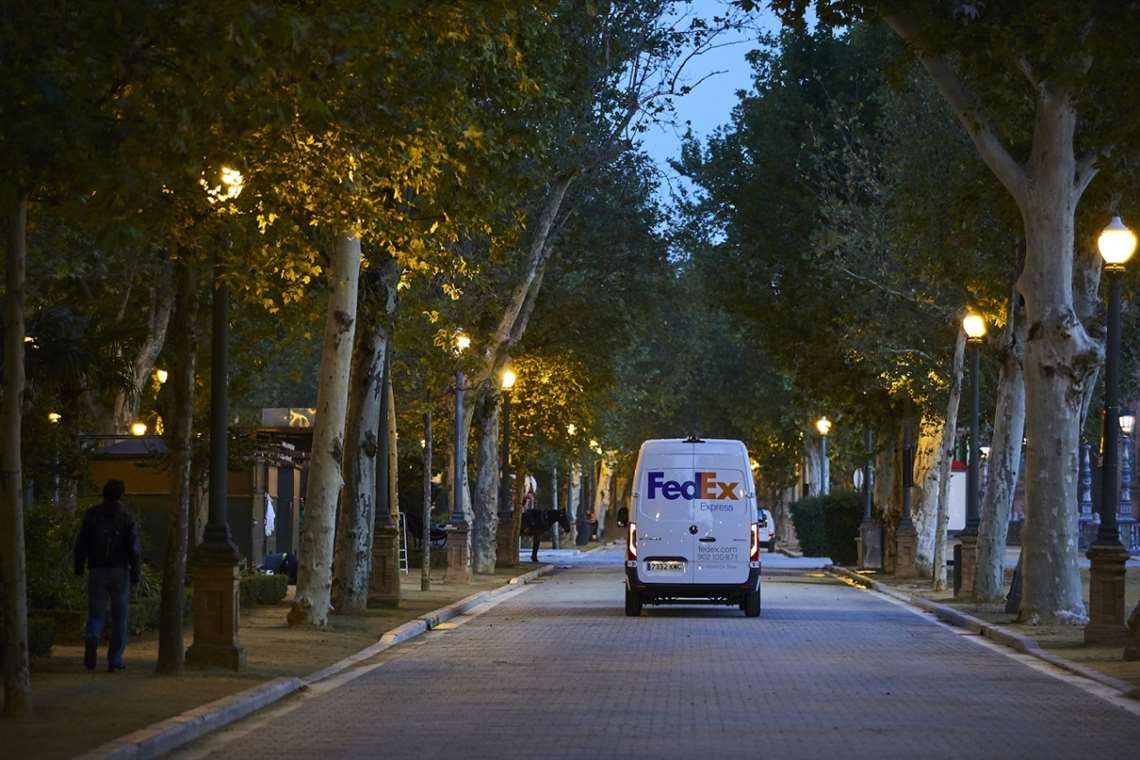FedEx aims to be carbon-neutral by 2040
10 March 2021
 FedEx has set a goal to reach carbon neutrality by 2040 and as part of that effort, it said the entire FedEx parcel pickup and delivery (PUD) fleet will be zero–emission electric vehicles.
FedEx has set a goal to reach carbon neutrality by 2040 and as part of that effort, it said the entire FedEx parcel pickup and delivery (PUD) fleet will be zero–emission electric vehicles.
FedEx Corp., which operates one of the world’s largest cargo airline and vehicle fleets, has announced an ambitious goal to achieve carbon–neutral operations globally by 2040.
To help reach this goal, the company said it is designating more than $2 billion of initial investment in three key areas: vehicle electrification, sustainable energy and carbon sequestration.
“We have a responsibility to take bold action in addressing climate challenges,” said Frederick W. Smith, chairman and CEO, FedEx Corp. “This goal builds on our longstanding commitment to sustainability throughout our operations, while at the same time investing in long-term, transformational solutions for FedEx and our entire industry.”
FedEx said that by 2040, the entire FedEx parcel pickup and delivery (PUD) fleet will be zero–emission electric vehicles. This will be accomplished through phased programs to replace existing vehicles. For example, by 2025, 50% of FedEx Express global PUD vehicle purchases will be electric, rising to 100% of all purchases by 2030. FedEx currently operates a fleet of more than 200,000 vehicles, with more than 3000 of them electric and more on the way, including the BrightDrop EV600 electric vehicle.
The plan also includes a pledge of $100 million to Yale University to help establish the Yale Center for Natural Carbon Capture, accelerating research into methods of carbon sequestration at scale, with an initial focus on helping to offset greenhouse gas emissions equivalent to current airline emissions. The Yale Center for Natural Carbon Capture will catalyze interdisciplinary research across the natural sciences and engineering in an effort to accelerate carbon capture/sequestration work.
Center researchers will develop methods that build on natural carbon storage systems, including biological ecosystems and the geological carbon cycle, improving, where possible, how quickly carbon can be absorbed, how much can be contained, and how long it can be stored. Through these efforts, Yale scientists aim to create a portfolio of carbon removal strategies that have impacts on a global scale.
STAY CONNECTED




Receive the information you need when you need it through our world-leading magazines, newsletters and daily briefings.
POWER SOURCING GUIDE
The trusted reference and buyer’s guide for 83 years
The original “desktop search engine,” guiding nearly 10,000 users in more than 90 countries it is the primary reference for specifications and details on all the components that go into engine systems.
Visit Now
CONNECT WITH THE TEAM









